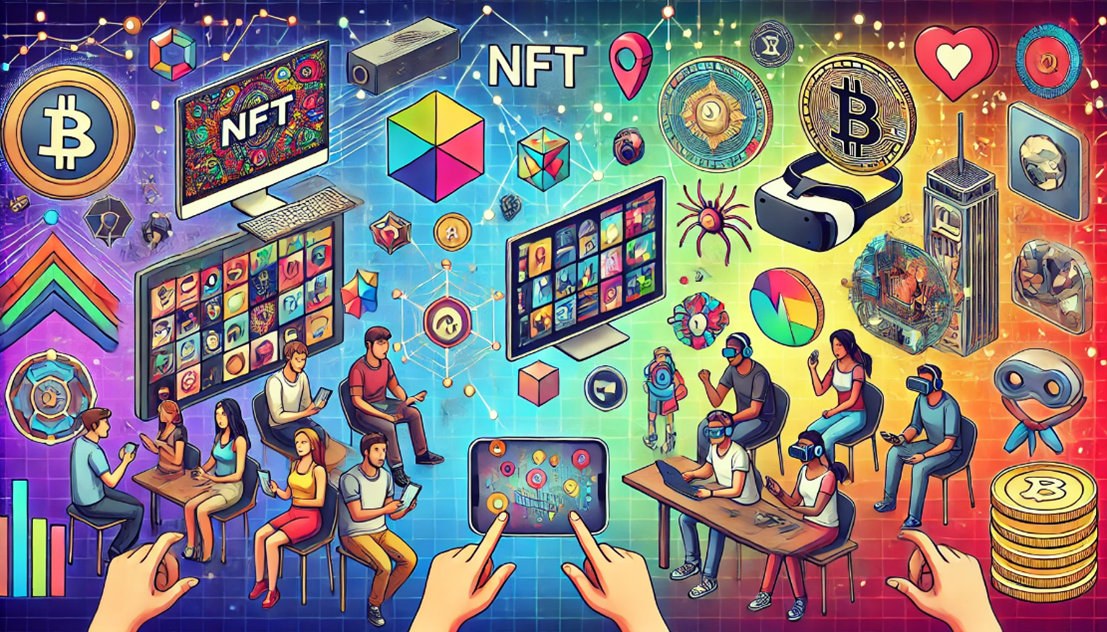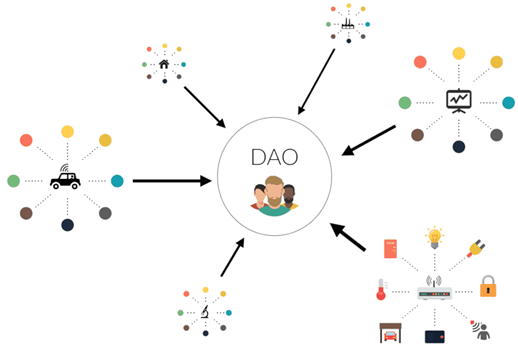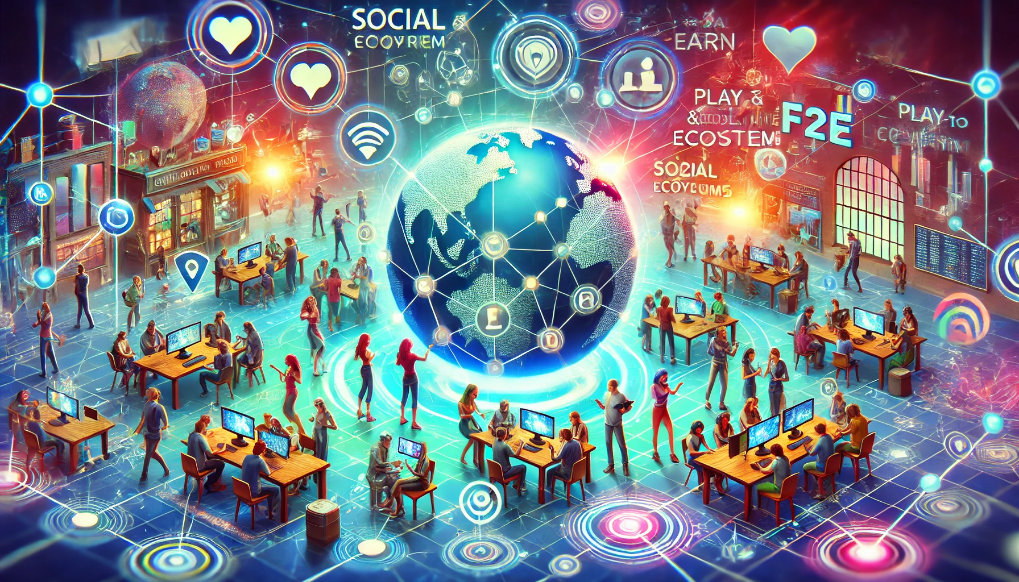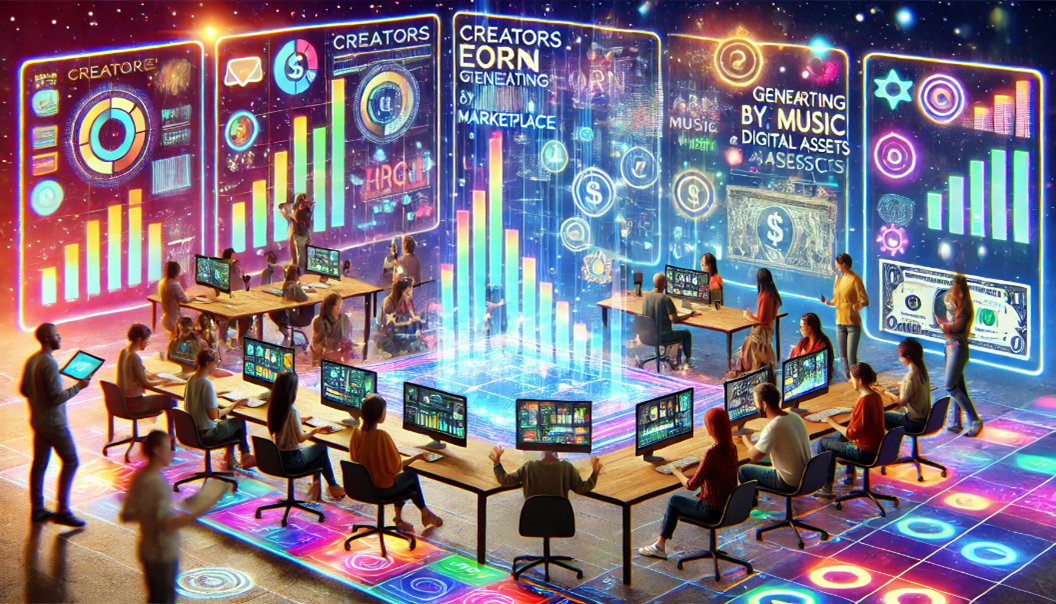What is the P2E game's security concerns like hacking and scams

What is the P2E game's security concerns like hacking and scams
by Nathaniel 04:27pm Jan 09, 2025
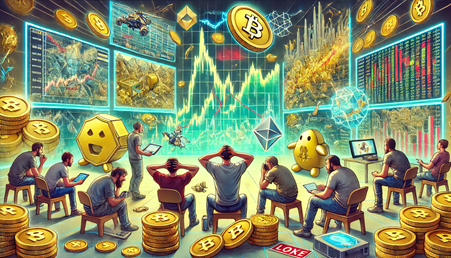
What is the P2E game's security concerns like hacking and scams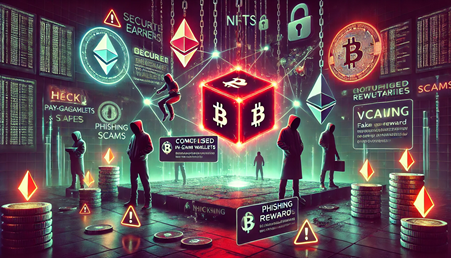
The challenge of economic instability in in-game economies, particularly in Play-to-Earn (P2E) games, is a critical issue that can significantly impact the sustainability and success of these games. The economic model in P2E games is often based on the exchange of digital assets, NFTs (Non-Fungible Tokens), and in-game tokens, which are traded and used as currencies within the game. This system is inherently vulnerable to fluctuations, external market conditions, and player behavior. Below are the main challenges related to economic instability in in-game economies:
1. Inflation and Token Devaluation
Excessive Token Supply: One of the primary risks in P2E games is the excessive issuance of in-game tokens or NFTs. If too many tokens are created or distributed too easily, their value may decline due to inflation. For example, if a game issues more tokens than are being burned or consumed within the ecosystem, the value of those tokens can fall drastically.
Devaluation of Assets: In cases where the in-game economy is heavily reliant on tokens, the continuous release of tokens can lead to a situation where the value of the tokens decreases. This makes it harder for players to earn real-world value from their time and efforts, reducing their incentive to participate.
2. Market Volatility
Cryptocurrency Price Fluctuations: Many P2E games are tied to cryptocurrencies (like Ethereum, Binance Coin, or Solana) or have their own native tokens. The value of these tokens can be highly volatile, and this can impact the overall in-game economy. For example, if the price of Ethereum crashes, players who earn rewards in Ethereum or trade assets priced in Ethereum may experience a loss of real-world value.
Speculation and Pump-and-Dump Schemes: The P2E economy can attract speculative trading, where players purchase in-game assets or tokens purely for resale. This can cause asset prices to spike, followed by sudden crashes when speculators sell off their holdings, creating an unstable market for players who aren’t involved in these schemes.
3. Unsustainable Economic Models
Rewards Distribution Imbalances: In some P2E games, the distribution of rewards is heavily skewed toward early adopters or a small group of players, leaving newer players with fewer rewards or reduced chances of earning. This can create a perception of an "unfair" economy and disincentivize participation.
Ponzi-like Systems: Some P2E games are accused of operating like Ponzi schemes, where new players' investments are used to pay rewards to existing players. This type of system is inherently unstable, as it requires a continuous influx of new players and funds to maintain the rewards structure. Once new player growth slows down, the system collapses, leading to a crash in the in-game economy.
4. Resource Scarcity and Game Balancing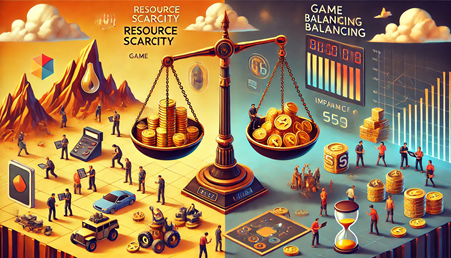
Overexploitation of Resources: In many P2E games, players can earn in-game assets by completing tasks or mining virtual resources. If these resources are over-mined or over-accumulated, the supply of valuable assets can overwhelm demand, leading to price crashes. For instance, if too many players gather the same rare item, its value may plummet.
Difficulty in Balancing Supply and Demand: Developers struggle to balance the supply of in-game rewards, resources, and NFTs with player demand. If too few items are released, they may become too valuable, leading to elitism and a lack of access for new players. Conversely, too many assets can cause inflation and make items lose value.
5. Excessive Dependency on Player Spending
Pay-to-Win Model:In some cases, the in-game economy may be tilted toward players who are willing to spend real-world money on in-game assets or advantages. This can lead to a "pay-to-win" (P2W) environment, where players who spend more money have a significant advantage over those who don’t. This imbalance can alienate non-spending players and harm the game's long-term sustainability.
Erosion of Incentives: If the game is designed in such a way that players rely heavily on spending money to earn or advance, the game risks losing its core player base once they feel that spending money becomes essential to success. The economy becomes unstable if the reliance on external funding outweighs the ability of the game itself to generate sustainable economic activity.
6. Exit Scams and Developer Malpractice
Developer Abandonment: If the game developers are not sufficiently invested in maintaining the game or are motivated purely by short-term profit, they may abandon the game once they’ve earned enough revenue, leaving the player base with worthless in-game assets. This is particularly common in poorly-managed or “cash grab” P2E projects.
Fraud and Manipulation: In some cases, developers might manipulate the in-game economy or inflate the value of NFTs and assets to create an artificial sense of value or scarcity. Players may end up purchasing these items at inflated prices, only for the developers to abandon the game or exploit the market for their own gain.
7. Over-Reliance on Speculative Trading
Market Speculation:Many P2E games rely on speculative trading of NFTs and in-game assets as part of their economic model. Players may buy assets hoping that they can sell them for a profit, but if demand for certain assets drops or if speculation turns negative, the in-game economy can suffer from asset crashes, devaluation, and loss of trust.
Lack of Intrinsic Value: Speculative-based economies in games can be highly unstable if the assets being traded do not have intrinsic utility or gameplay value. If assets are bought and sold purely for speculative purposes and do not enhance the gaming experience, they risk being seen as a "bubble," which can eventually burst.
8. Player Exodus and Decreased Demand
Mass Exodus of Players: If players stop participating in the game due to economic instability, changes in the game’s reward system, or loss of trust in the economy, the demand for in-game assets decreases. This creates a vicious cycle, where fewer players lead to less trading and asset demand, further destabilizing the economy.
Loss of Player Confidence: A significant factor in maintaining the stability of an in-game economy is player confidence. If players no longer believe they can earn meaningful rewards or if assets are consistently losing value, they will abandon the game. This decreases overall activity in the marketplace and reduces the circulation of tokens or NFTs, making the economy more volatile.
9. Legal and Regulatory Risks
Regulatory Uncertainty: As P2E games often operate in a decentralized, blockchain-based environment, they are susceptible to changing legal and regulatory frameworks. Governments may impose regulations on cryptocurrency, NFTs, or the overall concept of digital ownership, leading to legal uncertainties that can affect the game’s economy.
Security and Fraud Risks: The lack of regulation in some blockchain and NFT environments can expose players to fraud and exploitation, such as counterfeit NFTs, hacks, or scams. A security breach can undermine confidence in the game’s economy and lead to asset losses for players.
10. Sustainability and Long-Term Viability
Short-Term Reward Models: Many P2E games focus heavily on immediate rewards and quick returns for players, which can create an unsustainable cycle. Over time, as the supply of rewards outpaces demand or the player base diminishes, these models become unsustainable, and the game’s economic system may collapse.
Maintaining Engagement and Value: Ensuring the long-term sustainability of an in-game economy requires careful planning, ongoing development, and community engagement. Games must find a balance between rewarding players while ensuring that the in-game economy remains dynamic, fair, and sustainable for all participants.
Conclusion
Economic instability is a significant challenge for P2E games, and developers must carefully design their in-game economies to ensure sustainability. Balancing token supply, demand, resource distribution, and player incentives is critical to avoid inflation, devaluation, and market crashes. To overcome these challenges, developers need to implement robust, transparent economic models, incorporate long-term player engagement strategies, and ensure that the in-game economy remains adaptable to changing market conditions. Moreover, games must focus on providing value through gameplay and not solely through speculative trading or short-term financial incentives. Only with careful planning and ongoing development can P2E games create a stable, rewarding, and lasting economic ecosystem.



